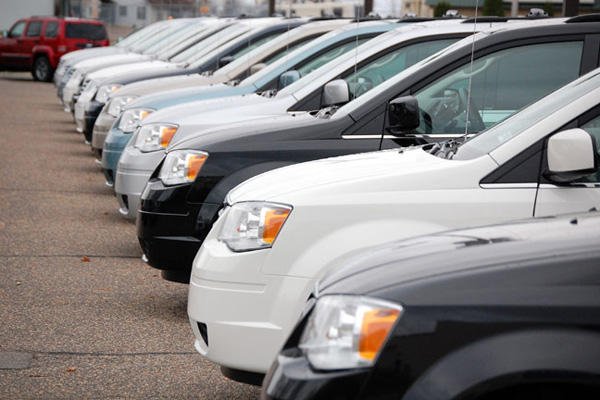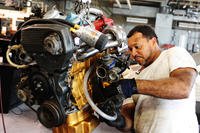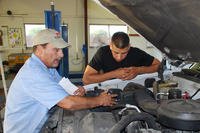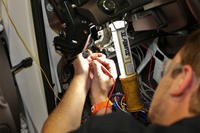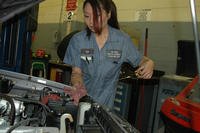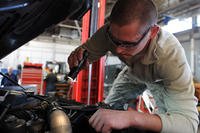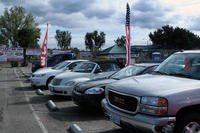This content is provided courtesy of USAA.
For most of us, the fancy features you desire in a car aren't really what you need. Cars touted as affordable, safe, spacious and fuel-efficient might not make you bristle with excitement, but they're more likely to have what it takes to keep you happy for a long time. Before you commit to your next vehicle, take time to think through which one would be right for you. Start your search using these seven tips:
1. Separate your wants from needs
Most buyers already know whether they're in the market for a family-hauler or a hot rod, but narrowing it down from there can get difficult. What's better for a hockey-coaching, drum-playing accountant — an SUV or a minivan?
"Think hard about your lifestyle and how you're going to use the car most often," says Steve Thompson, vice president of the USAA Car Buying Service. "Are you driving off-road in the mountains or cruising around the suburbs? Staying grounded in reality can help you make a more practical choice."
Vehicles of a similar size and shape range from thrifty to opulent. To rule out some models before you hit the showrooms, do some research on the Web with a realistic sense of your budget.
2. Consider used, but don't rule out new
The standard advice from consumer advocates used to be that buying "gently used" was a smart way to get a like-new car for less money.
"That decision has gotten more complicated," says Jesse Toprak, senior analyst for TrueCar.com. "Resale values for used cars have risen in recent years, and now manufacturers are offering very attractive rebates and financing incentives on new vehicles. Combine that with the full warranty of a new car, and in some cases new will be a better deal than used."
Of course, buying used still can make sense if the price is right for a vehicle that's been treated well.
3. Mind your mpg
It's no surprise that soaring prices at the pump increase the demand for fuel-efficient vehicles. But how much does mpg matter to you? Carefully consider your driving habits and whether you rack up enough mileage to make fuel economy a priority.
Eyeing a hybrid? Do the math before you go green. Unless you're a road warrior, the fuel savings from a hybrid may not be enough to cover the higher purchase price.
Also getting a lot of attention are electric vehicles. "EVs definitely came a long way in the last couple of years, particularly in terms of their affordability and attractive lease specials," says Toprak. "When compared to the cost of filling up an average gas engine vehicle every month, leasing a model like the Chevy Volt or Nissan Leaf could essentially amount to driving a free car for some consumers."
4. Err on the side of safety
Auto accidents can destroy lives, so safety should play a role in every car-buying decision. What you do, how you drive and whether you have children will help you decide how safe is safe enough.
Most new cars come with extensive safety features, such as air bags, anti-lock brakes and crumple zones. And the list of such standards gets longer every year, with some manufacturers offering voice-controlled instruments and rear-view cameras in even basic models. More advanced technologies, such as automatic crash avoidance systems, may come with a higher price tag.
For safety ratings, go to the Insurance Institute for Highway Safety, which conducts crash tests on most new cars.
5. Respect reliability
That sedan looks great, but will it hold up? A more dependable car could save you hundreds of dollars in repairs over the years. Online research tools offer predictions of reliability based on road tests, consumer surveys and other historical data.
Another way to help you determine if a certain car will zoom or sputter is to check the used-car listings. Find the vehicle you're considering and compare it to others in the same class. If it tends to sell for much less, that could indicate poor performance.
For new cars, the reports on reliability are generally positive, says Toprak. "Extreme competition in the auto industry has led manufacturers to concentrate heavily on quality, and consumers have benefited," he explains. "There are no real clunkers."
If reliability is a concern, consider an extended warranty, sometimes called an extended service contract, which could save you thousands of dollars in repair costs if your car has major problems after the manufacturer's warranty expires.
6. Price the insurance
Your age, where you live and how you drive all affect your auto insurance premiums. But your car makes up the other half of the equation. You might pay more to insure a vehicle that is reported to be in more accidents, cause more damage and cost more to repair, or is stolen more frequently than other models.
"As a general rule, sports cars are more expensive to insure than station wagons," says Angela Preciado, USAA auto product management director. "But if you're on the fence between two similar models, a quote from your insurance company might help you decide."
7. Secure the financing
Don't wait until you're at the dealership to start the conversation on financing. You can shop for an auto loan just like you'd shop for a pair of shoes, finding the right fit for your budget.
A lower annual percentage rate could save you a bundle over the life of the loan, even if it means passing up a cash rebate from the dealer.
